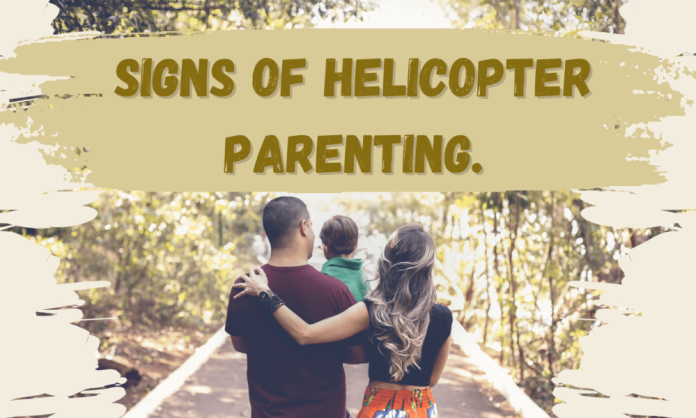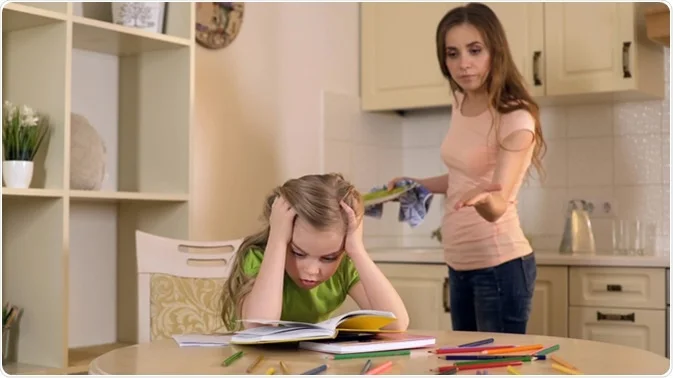
Helicopter parenting: the mere utterance of the phrase evokes images of hovering parents, never letting their kids out of their sight. But what are the signs of helicopter parenting and its effect on children? In this guide, we dive deep into understanding this parenting style, its implications, and its long-term effects on kids, especially when they become adults.
What are the Signs of a Helicopter Parent?

Before diving into the consequences, it’s crucial to identify the signs. Recognizing these signs is the first step in understanding and addressing the issue.
Over-involvement in a Child’s Life
Helicopter parents are often overly involved in every aspect of their child’s life, from academics to extracurriculars. It’s not unusual for such parents to constantly email teachers or become overly involved in homework.
Reluctance to Let Go
These parents have difficulty letting their children handle situations on their own. Be it a simple playground squabble or choosing a college major, helicopter parents often feel the need to step in.
Excessive Worry Over Child’s Safety and Well-being
While all parents naturally worry about their children, helicopter parents may take this concern to an extreme, never allowing their child to take part in activities deemed “risky”.
Decision-Making on Behalf of the Child
Instead of letting their children make decisions and face the consequences, helicopter parents often make choices for them, believing they’re acting in their child’s best interest.
Signs of Helicopter Parenting in Adulthood

The effects of helicopter parenting don’t just vanish as the child enters adulthood. In fact, they might become more evident. Here are the signs of helicopter parenting in adulthood:
Inability to Make Decisions Without Parental Input
Adults who grew up with helicopter parents might find it challenging to make decisions without seeking their parents’ advice, a clear indication of the lasting impact.
Lack of Problem-Solving Skills
Without the opportunity to face challenges and learn from mistakes, these adults might struggle when they encounter problems in real-life scenarios.
Dependency on Parents
Whether financially, emotionally, or physically, the shadow of the helicopter parent often lingers, leading to increased dependency.
Fear of Taking Risks
Having been shielded from potential dangers or failures, many adults who had helicopter parents avoid risks, potentially missing out on life’s rewarding experiences.
Helicopter Parenting: Negative Effects and Consequences

Understanding helicopter parenting’s negative effects is vital for parents and educators alike. Here are the key effects:
Stunted Emotional Development
Children who don’t get the chance to face challenges or manage emotions on their own may suffer from stunted emotional growth.
Lack of Resilience
When everything is smoothed out for them, children might not develop the resilience needed to handle life’s ups and downs.
Lower Self-Esteem
Despite their parent’s best intentions, being constantly protected can make children feel that they aren’t capable or trusted to handle situations.
Development of Anxiety and Depression
Several studies have linked helicopter parenting to increased levels of anxiety and depression in children. When parents constantly intervene, it sends a message to the child that the world is a dangerous place and that they’re not capable of handling it.
How Does Helicopter Parenting Affect a Child?

The effects are multifaceted, and while we’ve touched on the negative consequences, it’s crucial to delve deeper into how helicopter parenting affects a child:
Social Implications
Children with over-involved parents may find it challenging to develop friendships or maintain social connections, as they might lack the necessary social skills or be perceived as ‘different’ by their peers.
Academic Implications
Ironically, despite the constant push and involvement in their academic lives, children with helicopter parents might underperform. This could be due to the pressure, or because they lack intrinsic motivation.
Relationship Implications
As they grow older, these children might find it challenging to establish and maintain romantic relationships due to their dependency tendencies or lack of problem-solving skills.
The Long-Term Impact on Adults

When children under the influence of helicopter parents grow up, the effects don’t just disappear. Here’s a closer look at the helicopter parenting effects on adults:
Difficulty in Professional Settings
Adults who had helicopter parents might find it hard to adapt to professional environments. They may struggle with decision-making, taking initiative, or handling criticism, as they might not have faced such challenges growing up.
Over-reliance on Authority Figures
Just as they relied on their parents, these adults may overly depend on authority figures in their lives, such as bosses or senior colleagues, constantly seeking validation and direction.
Struggle with Independence
From mundane tasks like laundry or cooking to more complex ones like financial planning, adults with a helicopter parenting background might find it daunting to manage everyday responsibilities.
Vulnerability to Mental Health Issues
As mentioned earlier, these adults might have a higher predisposition to conditions like anxiety and depression. Their sheltered upbringing might leave them ill-equipped to handle real-world stresses.
Mitigating the Effects of Helicopter Parenting

Understanding the consequences of helicopter parenting is half the battle. Here are strategies for parents and adults who grew up under such influence to mitigate its effects:
Seeking Therapy or Counseling
Professionals can offer insights into behavior patterns and provide coping strategies. For adults, individual therapy can be beneficial, while parents might consider family counseling.
Fostering Independence
Parents should encourage children to take on age-appropriate tasks and responsibilities, allowing them to experience failures and learn from them.
Setting Boundaries
It’s essential for adults who recognize the signs of helicopter parenting in their upbringing to set boundaries with their parents. Open communication about the need for space and independence is crucial.
Continuous Learning and Self-awareness
Understanding the impact of such an upbringing and actively seeking knowledge, whether through books, courses, or peer discussions, can be empowering.
Empowering the Next Generation

While understanding and mitigating the effects of helicopter parenting are crucial, it’s equally vital to look forward and consider how we can empower the next generation.
Embracing a Growth Mindset
By embracing a growth mindset, parents and individuals can learn to see challenges and failures as opportunities for growth. This mindset promotes resilience, encourages perseverance, and is the antithesis of overprotectiveness.
Encouraging Exploration
Children should be encouraged to explore their interests, even if it means stepping out of their comfort zones. This exploration can foster independence, creativity, and a broader perspective on life.
Communication is Key
Open dialogue between parents and children can lead to mutual understanding. Parents can explain their concerns, and children can share their feelings and aspirations. This two-way communication can pave the way for a balanced relationship.
Learning from Other Cultures
Different cultures have varied parenting approaches. By understanding and sometimes adopting certain aspects from other cultures, parents can introduce a more holistic and balanced approach to child-rearing.
Evolution in Parenting Styles
It’s essential to recognize that parenting styles have evolved over the decades, adapting to societal changes, technological advancements, and shifts in cultural perspectives. While helicopter parenting is a term relatively recent in origin, it is but one among many parenting styles.
The Age of Technology
With the advent of smartphones, social media, and instant communication, parents are more connected to their children than ever before. This connectivity can both empower and hinder children’s development. Parents must find a balance between using technology to safeguard their children and giving them the space to grow independently.
Cultural Cross-pollination
Globalization has led to an intermingling of cultures. As families migrate or adapt to influences from different cultures, there’s an opportunity to blend the best aspects of multiple parenting philosophies.
Flexibility is Paramount
Gone are the days when a single parenting strategy was passed down through generations. Today’s parents have access to a plethora of information and resources, allowing for a more flexible, informed, and adaptive approach to raising children.
Conclusion
While the debate around the effects of helicopter parenting and other styles will persist, the ultimate goal remains universal: raising happy, healthy, and well-rounded individuals. Every challenge in parenting provides an opportunity for growth, both for the parent and the child.
For those looking to delve deeper into the evolving landscape of parenting, this series on modern parenting challenges and this exploration of emerging parenting philosophies are invaluable resources. As with any journey, parenting is best navigated with an open heart, a curious mind, and the knowledge that you’re not alone in your quest.











